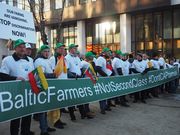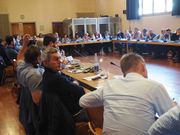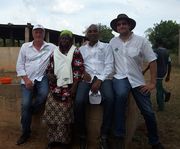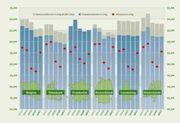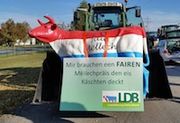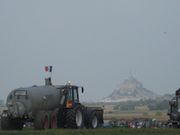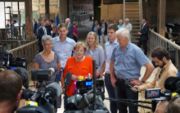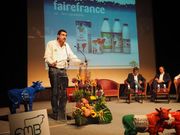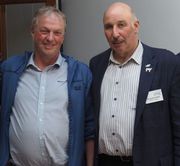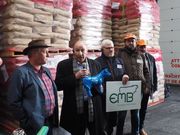EMB 2018: Year in review
Newsletter as PDF
Contact
EMB - European Milk Board asbl
Rue de la Loi 155
B-1040 Bruxelles
Phone: +32 - 2808 - 1935
Fax: +32 - 2808 - 8265
Dear dairy farmers, dear interested parties,

The year is coming to an end.
We would like to take this opportunity to look back at our journey in 2018.
The year presented us dairy farmers with some challenges as the dairy market still lacks effective instruments. Together with our members – milk producers from 15 European countries – we have tackled many of them head-on and achieved some of our goals, but we still have a long way to go.
In this festive season, I would like to thank everyone who has actively supported us along the way.
Thank you to all our colleagues within the EMB who have made our progress possible, have always provided new motivation for further developments and have helped us move forward.
Thank you to all policy-makers who have not only listened to our concerns but have also taken concrete steps toward the implementation of legislative measures.
Thank you to all fellow activists who fight with us shoulder to shoulder and add their voice to the call for a fair dairy sector.
And last but not least a big thank you to citizens and consumers, who appreciate our work in favour of a fair milk price and a fair income for us dairy farmers, so that we can pass our farms on to our children!
On behalf of the European Milk Board, I would like to wish you and your families a relaxing and peaceful Christmas season. May the coming days be a period of calm that will allow us to focus on what is important and gather strength to strive toward our goals for next year.
Season's Greetings and a Happy New Year!
Erwin Schöpges, President of the European Milk Board
Here's a recap of 2018 – Please find below a review of some important events in 2018.
„We call for a responsible milk policy"
Black Forest, 20 and 21 November 2018
End of October – Africa
Milk cost study showed: There is a gap between production costs and producer prices
Demonstration 28/09/2018 in Luxembourg
"Non, je ne regrette rien..."
Federal Chancellor Merkel visits dairy farmer
Study shows success of the EU volume reduction scheme announced 2 years ago
Fair – Fairer – Faironika
April 2018: Elections at the EMB
Visit to EU milk powder storage facility
Impressum
European Milk Board asbl
Rue de la Loi 155
B-1040 Bruxelles
Phone: +32 2808 1935
Fax: +32 2808 8265
E-Mail: office@europeanmilkboard.org
Website: http://www.europeanmilkboard.org

